
Great Western Railway has said a 12-month trial of a battery powered train and fast-charging technology has shown the two can be used to replace diesel units.

Great Western Railway has said a 12-month trial of a battery powered train and fast-charging technology has shown the two can be used to replace diesel units.
In what it termed “an industry white paper”, GWR said tests had proved the system was the way forward, beating the existing diesel fleet on two out of three key measurements (fuel and maintenance costs).
The only one where diesel came out in front was infrastructure.
However, the test train, with its system providing top-up charging during station stops, was still a fraction of the expense of extending overhead lines.
GWR’s branch line services, primarily in the Thames Valley and South West, rely on DMUs that have been in service for approaching 40 years.
As it prepares to look for their replacement, it has been experimenting with a former underground D-stock train on the Greenford branch in West London.
Two shipping containers packed with batteries, normally used to provide emergency power for businesses and hospitals, were installed at the West Ealing end of the route.
They are trickle charged from the grid overnight. The stored power is then used to top up the train’s batteries between runs up and down the two-and-a-half-mile branch.
According to Julian Fletcher, who has been supervising the project for GWR, the experiment has proved discontinuous electrification, using batteries to plug the gaps, can work across much of the network.
“You need the confidence in what your battery train can do before you say well actually, I'm going to have half mile of electrification and then a whole stretch (e.g. 20 miles) without,” he explained at an event on the train to launch the report.
“To work those numbers out and to work out how your service works you need confidence in the engineering that you've chosen and that's what this trial gives you.”
While the trial used shoes under the train, lowered onto charging sections of track between the running rails, the rapid charge could be delivered just as easily through overhead line equipment.
“Ultimately it is a testbed for Great Western's ambitions around replacing its regional fleet,” said the operator’s Engineering Director, Simon Green.
“It will also be applicable to many other operators in the UK as they seek to do the same with trains that are now well over 30 years old on other parts of the network.”
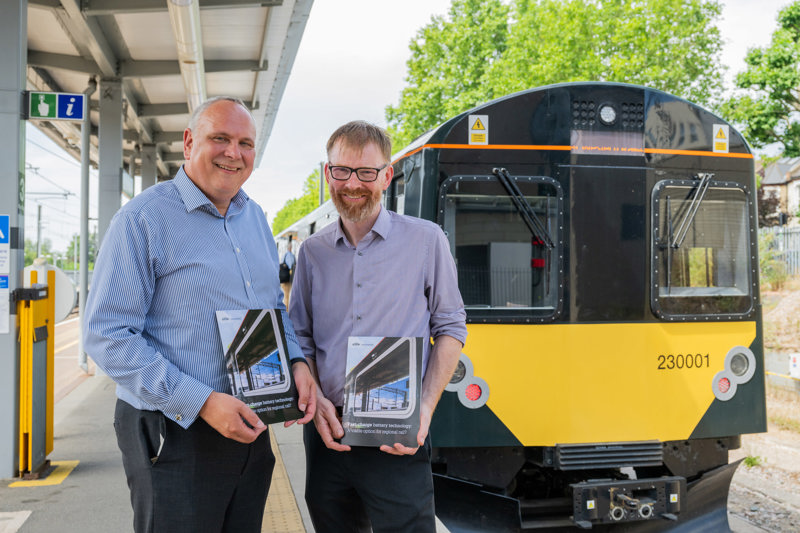
The operator is taking on Class 175 units for use in Devon and Cornwall while it considers long-term rolling stock plans.
One thing that seems unlikely, is that it will convert more D-stock trains to the rapid charging system.
“This is a test bed for the technology, so ultimately whilst we could convert more trains like this, there's only a limited number and we see this more as a technology prover to allow that then to be put into a new train project,” explained Green.
Another reason for not going down that route was obvious on the day of the launch of the study results.
Although air conditioning had been installed by Vivarail when they originally converted the former London Underground stock, it had struggled to cope with the recent heatwave.
GWR said it could have been improved but had simply not been a priority for a train that had never been intended to carry fare-paying passengers.
Trials staff had brought in desktop fans for their workstation, but cooling problems had resulted in the unit being declared unserviceable at one stage during driver training.
While not paying to travel on the train, in April, 230 volunteers joined it for loading trials.
On the day of the report’s launch, a group of officials from the Department for Transport were the latest group to make the journey between West Ealing and Greenford.
Whitehall will inevitably decide what happens next.
As GWR, Managing Director, Mark Hopwood, writing in the forward to the report said: “We’ve shown that the technology works. Now we need to bring it into daily service.”
Login to continue reading
Or register with RAIL to keep up-to-date with the latest news, insight and opinion.


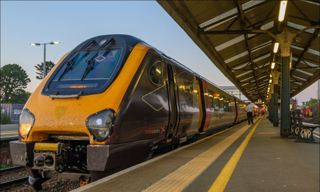
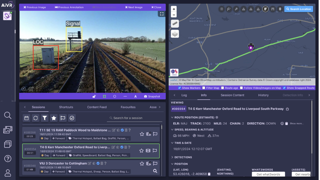
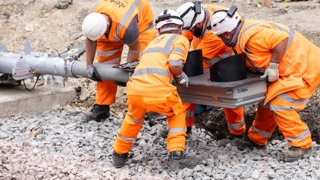
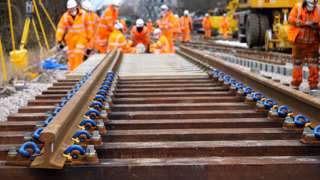











Login to comment
Comments
No comments have been made yet.